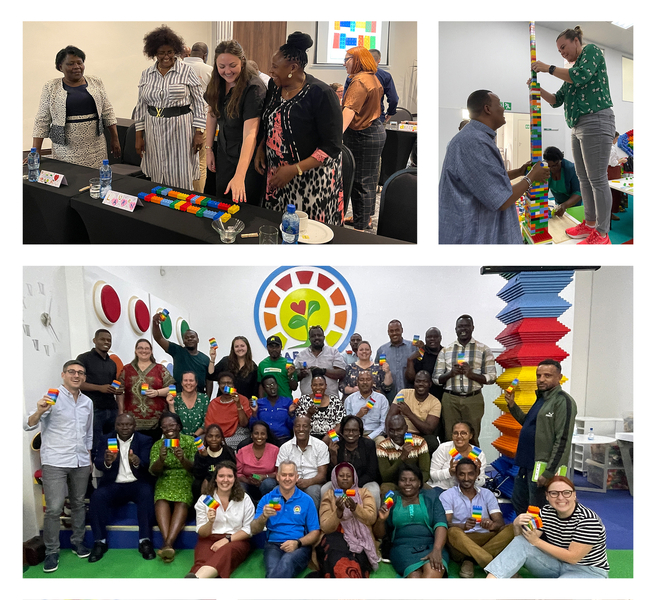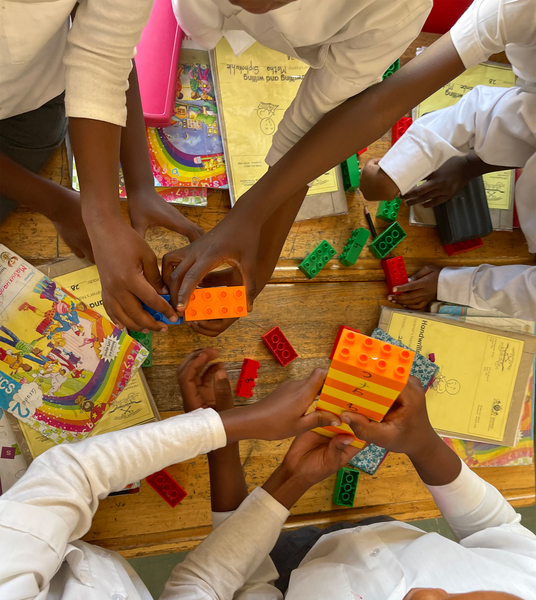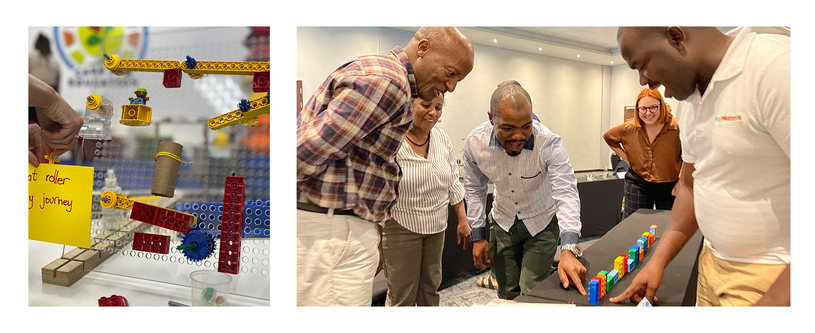LEGO Six Bricks Training: Exploring the basics of discovery, imagination, and hands-on learning
Nov 24, 2022
From the 24th to the 28th of October 2022, the Care for Education (CFE) team in South Africa hosted and facilitated a Six-Bricks Learning through Play training to PlayMatters consortium staff and Ministry of Education officials from the respective implementing countries. The training was an opportunity for participants to deepen their understanding of how to use learning through play principles and manipulatives to help children learn and discover the world through play.
During the five-day training, CFE staff shared expertise on a range of topics, including child development, play in early childhood education, and the use of LEGO® six bricks as a learning tool. The training was highly interactive, and participants had the opportunity to put their new knowledge into practice by building multiple projects with LEGO® bricks. At the end of the week, all participants had a better understanding of how to support children's learning through this hands-on and child-centered learning approach. This exploratory learning approaches failure as a learning process. Rather than focusing on what a child learns, CFE through six bricks is using critical thinking as a learning process to impact how children learn new concepts and skills.

The hands-on approach also has immense benefits. For example, it helps children understand abstract concepts through practical activities while building fine motor skills (building muscles in their hands and fingers that they will need for writing and other tasks.) It also helps build children’s social skills. When children use manipulatives with each other with the guidance of their teachers, they have to share, take turns, and cooperate. This helps them develop social skills they need in school and in life.
Teachers at Cosmo City West Primary School in Johannesburg discovered that six bricks are a powerful tool for learning after receiving training from CFE. During a visit to the school as part of the training program, PlayMatters staff and stakeholders experienced how they use the six bricks to teach various concepts. For example, in a grade 2 class, a teacher was using the bricks to demonstrate the concept of patterns in math and used the bricks to teach calculations.

The children were already familiar and comfortable with the bricks, so they were able to learn the lesson effectively without a fear of failure, while at the same time enjoying the lesson and building their cognitive skills. This is just one example of how six bricks can be used to teach any lesson in a fun and engaging way.

The six bricks training was a success and the PlayMatters consortium is excited to see how this newly learned knowledge will help the project integrate six bricks into future implementation in refugee and host community schools in Uganda, Ethiopia, and Tanzania. Stay tuned for more on the six bricks journey in PlayMatters coming soon!